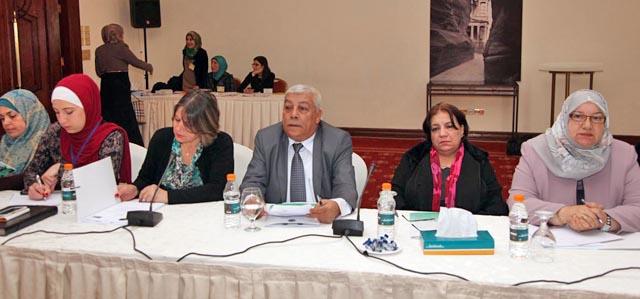You are here
New municipalities law aimed at entrenching decentralisation
By Dana Al Emam - Mar 03,2014 - Last updated at Mar 03,2014

AMMAN — A new draft municipalities law seeks to move towards decentralisation as it shifts the decision-making authority from the ministry to governorates in a number of cases, Municipal Affairs Minister Walid Masri said on Monday.
"This law can be considered a step ahead towards achieving local governance, instead of local management," he said, adding that it seeks to improve the representation and the authority of municipal and local councils.
In a discussion titled "Towards a consensual municipalities law", Masri noted that the draft will be referred to the Lower House to undergo possible amendments, without specifying the date of its submission.
The new law allows the formation of alliances among municipal councils in order to develop the services provided to citizens, and is part of a reform plan for municipalities to enhance their autonomy and improve services, the minister noted.
Representatives of political parties, municipal officials and deputies provided their comments on the draft law, which Masri "promised" to look into.
Former MP Abla Abu Olbeh, secretary general of the Jordanian Democratic People’s Party (Hashed), said the bill, along with the existing Elections Law and the Political Parties Law, need to undergo changes to guarantee "legislative stability" and avoid repetitive amendments.
Abu Olbeh praised the draft's proposal to form elected governorate and municipal councils with representatives from across the professional and social spectrum.
"However, the draft mentions that voting for the governorate council's president and vice president is either by consensus or majority vote, which does not suit the democracy we seek," she said, suggesting a majority vote of 50 per cent plus one.
Abu Olbeh, who was a member of the Royal Committee for Enhancing National Integrity, also noted the bill's "discrimination" between municipalities based on their population.
The financial allocations for municipalities should be governed by a fair system to avoid depriving small municipalities of services and development projects, she added.
The draft law maintains the percentage of women's representation on municipal councils at 25 per cent.
"Women's participation should be encouraged by holding popular meetings to educate them on what municipal councils do and offering them more incentives to participate," Abu Olbeh said.
Marwan Faouri, former secretary general of the Municipal Affairs Ministry, highlighted municipalities' contribution to the creation of popular and political leaders, noting that "constant meddling" with municipal laws caused the deterioration of that role.
Faouri stressed the need for adopting transparency in municipal elections.
"The draft names the Independent Elections Commission as a supervisor of the voting process, yet also mentions the Interior Ministry and district governors," he said, noting that this implies a kind of dependence on the state.
Faouri also questioned the reason behind reducing the municipalities' share of traffic ticket revenues from 60 to 40 per cent, despite their need for financial support.
The discussion, organised by Al Badeel Centre for Studies and Research in cooperation with Friedrich Ebert Stiftung (FES), sought to recommend amendments to the law to reach a "consensual and democratic form", according to the centre's director, Jamal Khatib.
The German FES works around the world to promote democracy and social justice, according to Anja Wehler-Schoeck, resident director of the foundation, who noted that municipalities play an essential role in deepening these principles.
"Creating local centres of decision making can limit the risks of the abuse of power and corruption… decentralisation can therefore be an important component of democratisation," she said, adding that municipalities should be supported by a strong legal framework.
"[Municipalities] need sufficient and qualified staff, adequate funding and the necessary infrastructure, as well as communication channels with the public."
Related Articles
The Ministry of Municipal Affairs on Sunday endorsed the draft municipalities law and referred it to the Legislation Bureau, before its final endorsement and referring it to the Council of Ministers, the Jordan News Agency, Petra, reported.
AMMAN — Enhancing equal rights and boosting women’s political and economic participation is not possible without a democratic basis that tra
A Jordanian delegation left for Lebanon on Tuesday to check on the Lebanese experience in decentralisation and municipalities.
















